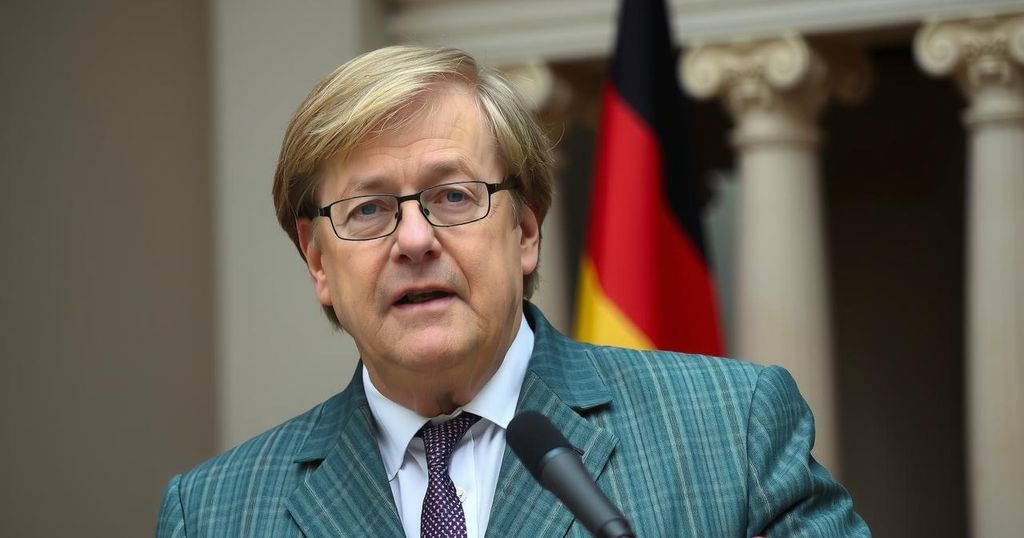Germany’s President Calls for Early Election Following Coalition Collapse

German President Frank-Walter Steinmeier announced the dissolution of parliament, calling for elections on February 23, 2024, after Chancellor Olaf Scholz lost a confidence vote. This decision follows the collapse of his governing coalition, with current polls indicating a leading position for the conservative Union bloc. Key issues such as immigration and economic revitalization dominate the electoral debate as the campaign intensifies ahead of the polls.
On December 16, German President Frank-Walter Steinmeier officially announced the dissolution of the Bundestag and scheduled national elections for February 23, 2024. This decision followed Chancellor Olaf Scholz’s loss of a confidence vote and the subsequent collapse of his governing coalition on November 6, a crisis sparked by economic disputes that included the dismissal of the finance minister. With the dissolution, Steinmeier initiated a campaign season wherein the political landscape appears fraught, with Scholz’s party trailing behind the conservative Union bloc led by Friedrich Merz. Furthermore, Vice Chancellor Robert Habeck, representing the environmentalists, seeks to strengthen his party’s influence amid an election context filled with critical issues ranging from immigration to economic recovery and support for Ukraine against Russia.
The recent political developments in Germany have been significant, marking the fourth instance in which the Bundestag has been dissolved prior to its usual term under the post-World War II constitution. The precedent for such directives can be traced to notable chancellors such as Willy Brandt in 1972, Helmut Kohl in 1982, and Gerhard Schröder in 2005, the latter utilizing a confidence vote to facilitate an early election.
The current political climate features polling indicating strong support for the populist alternative party, AfD, whose candidacy of Alice Weidel is unlikely to yield governance due to widespread opposition from other parties. As the electoral environment evolves, it is essential to recognize that Germany’s political framework usually fosters coalitions, with most parties presently lacking the capacity for an absolute majority, setting the stage for intricate negotiations post-election.
Germany’s parliamentary system is governed by a constitution that limits the circumstances under which the Bundestag can be dissolved, providing a structured process for political transitions. President Steinmeier’s decision to dissolve parliament reflects a significant moment in German politics, highlighting the challenges faced by Chancellor Scholz’s government amidst economic stagnation and coalition instability. The upcoming elections are crucial as they will determine the direction of policy-making on several pressing issues, including economic revitalization and immigration, which resonate deeply within the electorate. Historical context regarding previous early dissolutions under different chancellors frames the current situation and illustrates the precedents that shape contemporary political maneuvers.
In conclusion, the dissolution of the Bundestag by President Steinmeier and the upcoming elections scheduled for February 23 serve as pivotal moments in Germany’s political landscape. The challenges of governance, coalition building, and addressing key societal issues emerge at the forefront of this electoral period. Voter sentiment, particularly regarding immigration and economic policy, will play a crucial role in shaping the future of Germany’s government. As previous instances of early parliamentary dissolution have shown, the path forward will likely involve complex negotiations amidst an evolving political tableau.
Original Source: jakartaglobe.id








